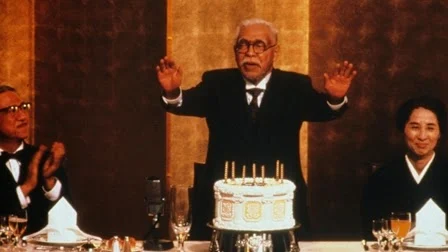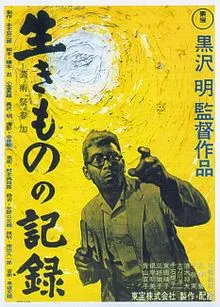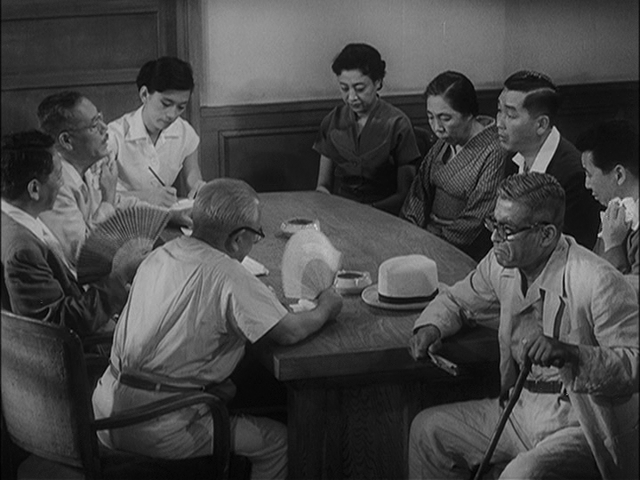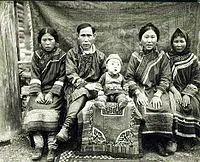 Shubun (Scandal, Japanese; 1950)
Director: Akira Kurosawa
Shubun (Scandal, Japanese; 1950)
Director: Akira Kurosawa
The theme of this movie is still relevant today. The talk of the need for the public to know everything versus the space for citizens and people in authority to safeguard their secrecy is an ongoing debate. Where the line should be drawn on the Truth is anybody's guess. With the recent leakage of supposedly private intimate poses of celebrities to the media is proof of this ongoing debate on this debacle. The boundary of what is indeed trash and what is news is progressively blurred as the public gets all excited with trivial unimportant happenings or smut that happens to people in the limelight or are the people in the press simply sensationalizing these trivial non events?
Again, Kurosawa had chosen a modern looking post war Japan with a Western outlook. People are dressed in Western clothes, jackets, pants and dresses and the ladies were donning cropped modern hairstyles. The recreational activities mirror their Western counterpart. Instead of horses at the races, in this movie, cyclists were the racers!
The legal system is also Western in outlook. With modernisation come the scourge of modern living, journalists.
Even back in the 50s, pressmen had become a nuisance to modern living especially amongst the rich and famous. This, is the basis of this movie.
After seeing Toshirō Mifune (a Kurosawa regular) in mostly stern and serious roles, here he is seen as a happy smiling free wheeling artist, Ichiro Aoye, motorcycling by the countryside painting natural landscapes. During one of these trips, he gives a ride to a famous singer, Miyaso Saijo, unknown to him at that time, after she misses her bus and was heading to the same inn as himself. Miyaso, a shy artiste, was moving around incognito but was identified by a tabloid reporter. As she was sipping tea in Aoye's room dressed casually in kimono, they were secretly photographed. And the tabloid has a field day promoting a non-existent secret love affair of the singing star. Suddenly, the general public recognises both of them everywhere. They are both everybody's darlings. The paper is also happy, laughing all the way to the bank with their sudden increase in circulation.
Aoye is not amused, however. He intends to sue the tabloid for invasion of privacy. Ms Saijo later joins in.
Comes in attorney, Hiruta, a failed lawyer who had lost the rat race in the dog-eat-dog world of lawyers offering his services to represent Aoye. The role of Hiruta is played by Takashi Shimura, another regular feature of Kurosawa's movies. Unlike his previous outings where he is docile and reserved, Shimura is a fast talking lawyer, at least initially. He has a heavy sorrow of a burden that he carries on his back. He has a very sick TB infected daughter at home and an unquenchable addiction for the races. He feels inadequate both as a father and a lawyer.
The publishers, fearing that they may lose money at court, entice Hiruta by sponsoring him at the races and bribing him.
As the case progresses, Hiruto's throwing of his case become apparent to everyone. His clients, however, still gives him a chance as they get closer to Hiruto's charming but ill daughter. This further depresses Hiruto who is caught in a bind - he is cheating his clients blind even though they go all out to cheer and fete his terminally ill child!
Along the course of the trial where the tabloid's defence attorney, a prominent law figure from the university, has a field day, Hiruto's daughter succumbed to her illness.
At the crucial moment, during submission, Hiruto makes clear to the court of the defence's treacherous attempts at bribing him and turns the case around in his clients' favour.
A nice feel good movie which tries very hard to show the goodness in every individual. Just like the 1946 Christmas movie 'It's a wonderful life' the formula of using the songs 'Silent Night' and 'Auld Lang Syne' seem to work wonders to highlight this point.
In embracing the cultures of their captors, even the Japanese have these songs sang in their own lingo. They don't go around complaining that they have been wronged by a world conspiracy to outsmart their success and bring down their culture.In the 70s many rock bands like 'Cheap Trick' were pleasantly surprised when they performed live in Budokan. Their fans in this non-English speaking land could sing every verse of their songs word to word!
 This film is supposed to have elements of Akira Kurosawa's 'Ran' in its storyline. And Kurosawa's 'Ran' is supposed to have similarities to King Lear. Unfortunately, the similarities end at the level of a man of power and the power struggle between his three sons over his ruling empire. Here, the struggle is for the position of 'Don' between three sons. Each suspects each other of sabotage and try to outdo each other with wit and the might of gunpowder. Unfortunately, at the end of the day, after much killing, the sufferings of their loved ones, the death of the few and the double-crossing of their most trusted ones, the thugs realise that one who lives by the gun dies by one.
This film is supposed to have elements of Akira Kurosawa's 'Ran' in its storyline. And Kurosawa's 'Ran' is supposed to have similarities to King Lear. Unfortunately, the similarities end at the level of a man of power and the power struggle between his three sons over his ruling empire. Here, the struggle is for the position of 'Don' between three sons. Each suspects each other of sabotage and try to outdo each other with wit and the might of gunpowder. Unfortunately, at the end of the day, after much killing, the sufferings of their loved ones, the death of the few and the double-crossing of their most trusted ones, the thugs realise that one who lives by the gun dies by one.
 This film is supposed to have elements of Akira Kurosawa's 'Ran' in its storyline. And Kurosawa's 'Ran' is supposed to have similarities to King Lear. Unfortunately, the similarities end at the level of a man of power and the power struggle between his three sons over his ruling empire. Here, the struggle is for the position of 'Don' between three sons. Each suspects each other of sabotage and try to outdo each other with wit and the might of gunpowder. Unfortunately, at the end of the day, after much killing, the sufferings of their loved ones, the death of the few and the double-crossing of their most trusted ones, the thugs realise that one who lives by the gun dies by one.
This film is supposed to have elements of Akira Kurosawa's 'Ran' in its storyline. And Kurosawa's 'Ran' is supposed to have similarities to King Lear. Unfortunately, the similarities end at the level of a man of power and the power struggle between his three sons over his ruling empire. Here, the struggle is for the position of 'Don' between three sons. Each suspects each other of sabotage and try to outdo each other with wit and the might of gunpowder. Unfortunately, at the end of the day, after much killing, the sufferings of their loved ones, the death of the few and the double-crossing of their most trusted ones, the thugs realise that one who lives by the gun dies by one. 





























+(1991)_May+27,+2014,+9.37.32+PM.png)












